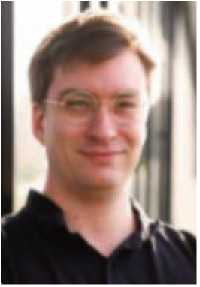Helge S. Stein 12
1 Institute for Physical Chemistry, Karlsruhe Institute of Technology, Karlsruhe, Germany
2Helmholtz Institute Ulm, Ulm, Germany
EXTENDED ABSTRACT: Combinatorial materials science (CMS) build the foundation upon which the materials genome initiative (MGI) tries to perform inverse materials design. Integration of machine learning methods is then believed to boost the productivity of insight generation by at least an order of magnitude. In this talk I will present some thoughts on the bottlenecks of the acceleration of materials science by asking what the scientific process really is, how we can modularize, automate and accelerate it by performing "research engineering". This talk builds upon the lessons learned from participating in CMS and MGI related research projects and what level of integration of not just machines but also between humans and machines as well as inter-laboratory and inter-national research workflows is necessary to build a global materials acceleration platform (MAP). I will demonstrate some key aspects with examples from battery research and show how these innovations can be translated to other energy related fields like catalysis and photovoltaics.
Keywords: Materials Acceleration Platform; Batteries; Workflow Integration; REFERENCES
[1] H. S. Stein, et al,. Curr Op in Electrochem, (2022) 101053
⑵ H. S. Stein, Trends in Chemistry, 4, 8, (2022), 682-684

Helge S. Stein obtained his PhD in 2017 from Ruhr-University Bochum with distinction and performed his Postdoctoral Studies as a Research Engineer at Caltech, USA. Since 2020 he is a Tenure-Track Professor at the Karlsruhe Institute of Technology and a PI at the Helmholtz Institute Ulm where he is researching at the intersection of laboratory automation, data science and fundamental battery research to discover and upscale sustainable batteries for the TWh scale.